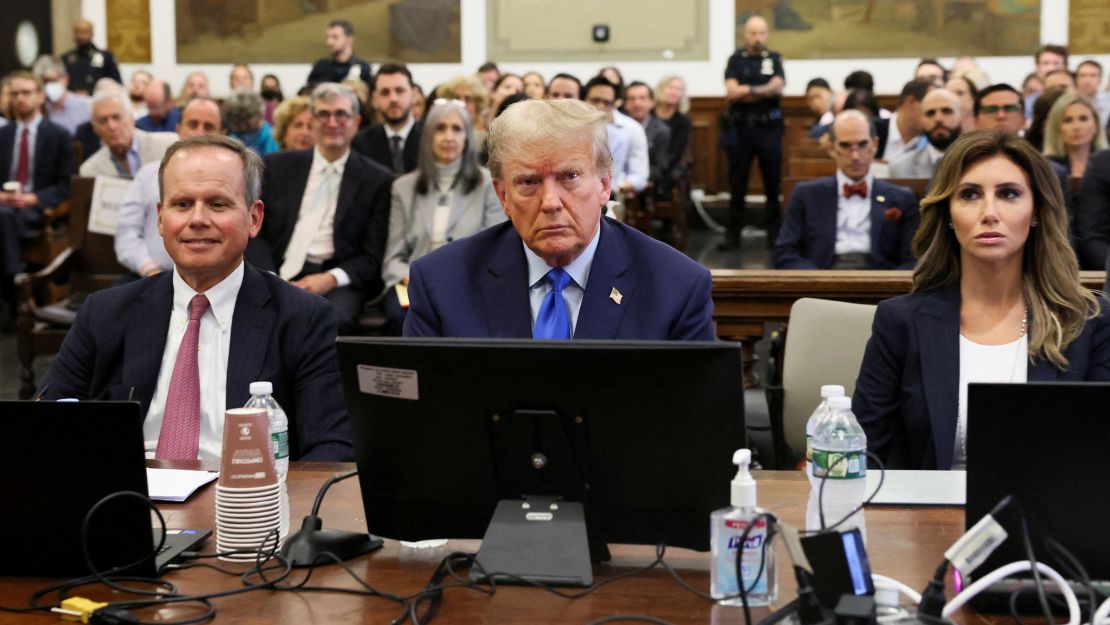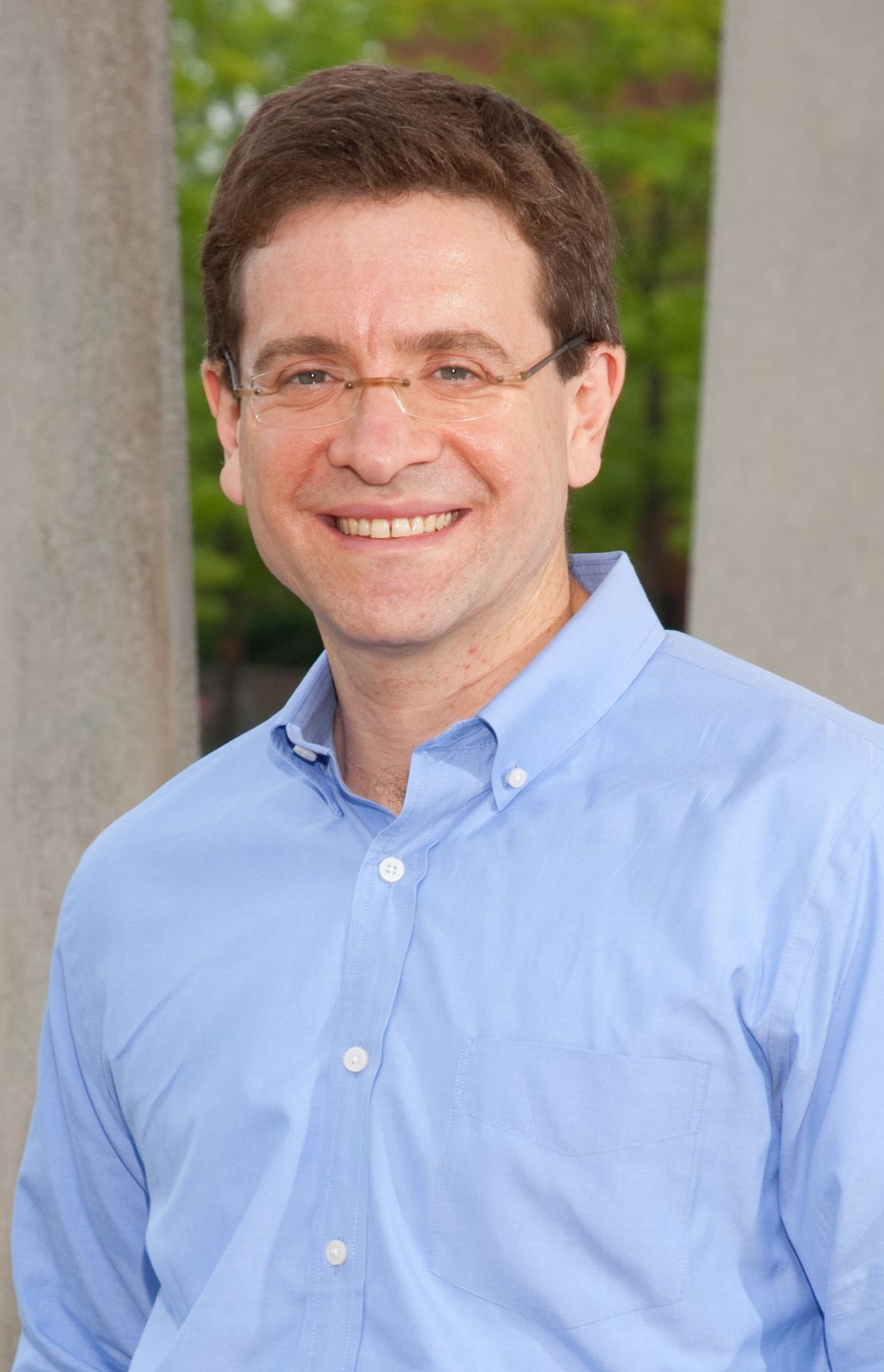Editor’s note: Julian Zelizer, a CNN political analyst, is a professor of history and public affairs at Princeton University. He is the author and editor of 25 books, including The New York Times bestseller “Myth America: Historians Take on the Biggest Lies and Legends About Our Past” (Basic Books). The views expressed in this commentary are his own. View more opinion on CNN.
CNN
—
Former President Donald Trump might want to start collecting a customer loyalty punch card in the nation’s court system given the number of cases he’s facing. On Monday, opening statements were made in the civil fraud case over Trump vastly inflating the reporting on his wealth. You could be forgiven for forgetting about the case in the flurry of the four criminal indictments handed down since New York State Attorney General Letitia James filed the civil case against him and the Trump Organization in September 2022.
But one of the people who doesn’t seem to want you to forget about the current trial is Trump. He chose to show up for the first day of court Monday despite having the option of skipping the proceedings. It gave him more attention that way, as well as the chance to stand outside the Manhattan courtroom and tell reporters, “There is no crime. The crime is against me.” When asked why he had showed up, he answered: “Because I want to watch this witch hunt myself.”
The statements point to how Trump sees the judicial cases against him as beneficial. He can present himself as a person under attack from the establishment. As he said, the crime is against “me” and, in turn, against the people who support him. “I’m being indicted for you,” he said in August.
While other Republicans are focused on televised debates, Trump is running his campaign through the trials. They are affording him free airtime and driving campaign contributions. In his version of the trial, he is never guilty, everyone else is. And that is the point.

But there are other persons who benefit from these cases. These trials also have an impact on the careers of those in law and order, even if in different ways given that none of them is accused of being engaged in wrongdoing.
For starters, James is emerging as one of the most interesting Democrats in New York politics and could receive a boost in her own public standing as a result. Should James be the person who can puncture one of the things Trump loves most — his wealth and claims about his economic prowess — and at the same time damage the partisan shield that has seemingly protected him from accountability, she will undoubtedly become an even bigger player on the national stage.
And she’s not alone. Fulton County, Georgia, District Attorney Fani Willis is on her way to becoming a household name as she pursues Trump over alleged election interference, as is Alvin Bragg, the Manhattan district attorney who is prosecuting Trump over hush money payments. (Trump has denied all wrongdoing in these cases as well as the federal indictments over alleged mishandling of classified documents and election interference on January 6, 2021.)
Just as ironically, the political player who has the most to gain from the spotlight staying laser-focused on Trump is President Joe Biden. Biden, who has struggled in the polls, would retain considerable advantages if he faces a rematch against Trump in the general election. As Biden demonstrated in the 2020 election, he knows how to craft a campaign around the themes of integrity, normality, stability and a commitment to governance. The contrast with Trumpian chaos and disregard for guardrails was striking and remains so.
Though Biden faces many challenges in the months ahead regardless of his opponent, the baggage that the former president will be bringing with him, amplified and clarified by these cases, will likely strengthen Biden’s case before the electorate.
All of which creates a paradoxical political dynamic as political and legal adversaries end up finding advantage from common events in very different ways.
This tension is already being seized on by Trump attorney Alina Habba. In her opening statement on Monday, Habba attacked James for saying, in the prosecutor’s own campaign for attorney general, that she was going to “get Trump” as evidence of this being a partisan exercise.
Judge Arthur Engoron pointed out that he’d already found that Trump had grossly inflated his asset statements, as James had alleged, before the trial began. That suggests James is on solid ground in pursuing her case. Engoron added that the ruling was affirmed by a New York appellate court, “So Ms. James’ motivations are no longer at issue in this case, are they?”
Since the fraud trial is being held without a jury — as Engoron explained Monday, neither side asked for one — Habba’s attack on James’ motivations is likely to be of no help to Trump in the fraud suit. But in trials with a jury, similar attacks could have more impact. And Habba’s words still might resonate in the court of public opinion.
Biden has taken a different approach to the interconnected political relationship presented by these legal matters. He has been extraordinarily careful to stay free from the investigations against Trump and to allow the process to play out on its own — including with a Trump appointee heading the inquiry into his son Hunter. But he continually faces the danger of saying something that would be fodder for Trump’s unproven allegations that this is all a political hit job.
The judges in these cases have also wrestled with this issue, weighing imposing some form of gag order on a former president who loves to threaten and intimidate, but without infringing on the speech rights of a political candidate.
The prosecuting teams, meanwhile, will contend with the elevated status that comes from high-profile cases. They will have to navigate the attention that is impossible to avoid — and is no doubt sometimes desired — with the need to protect public perceptions that the case, and they themselves as agents of the law, are legitimate. In a world filled with conspiracy theories and disinformation, this won’t be easy.
To be sure, there is ample precedent for this dynamic. There’s no doubt that US Attorney General Merrick Garland’s role in the Oklahoma City bombing case —he oversaw the prosecution of Timothy McVeigh — elevated him in the pool of judicial, and eventually, White House nominees.
Further back, during the Watergate investigation, some of the senators involved in the panel looking into the matter, such as Sen. Sam Ervin of North Carolina, also saw their national stature elevated as a result of their role. Ervin was transformed from one of the old conservative Dixiecrats into a constitutionalist and institutionalist who defended the integrality of Congress. Leon Jaworski emerged as the embodiment of the dutiful prosecutor, guided by law seeking justice.
Others, however, found infamy. In the late 1990s, for instance, independent counsel Kenneth Starr, who led the investigations into President Bill Clinton that culminated in impeachment, found his career greatly diminished by perceptions that he was a partisan hack.
Get Our Free Weekly Newsletter
Those who are seeking Trump be held accountable thus need to be extremely cautious. After all, Trump’s main response to trouble has never been to get people to like him. Instead, he tries to get Americans to distrust and dislike the other person just as much. And this will remain his major strategy as the legal proceedings unfold. He will do so with the trials, sowing doubt as to whether any of this is legitimate. No doubt he might play on racial and ethnic prejudice, as he has done before.
Trump’s trials are unprecedented. We have not had a former president and party front-runner in this kind of legal jeopardy before. But we do know that Trump isn’t the only one whose future is likely to be affected by his legal cases and their outcomes. Indeed, just as he did with American electoral politics, Trump is now dragging down the entire legal system into his chaotic world.
Credit: Source link




